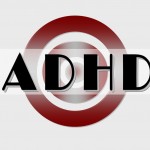
Attention deficit hyperactivity disorder (ADHD) is a group of behavioural symptoms that include inattentiveness, hyperactivity and impulsiveness.
ADHD is often thought of as a childhood problem, but it can be a lifelong condition, and many children continue to have symptoms as a teenager and adult. It is estimated that nearly two-thirds of children with ADHD still have some symptoms at the age of 25.
The World Health Organisation published a survey in 2008 which showed that 3.5% of employed adults aged 18 to 44 have ADHD. Furthermore, Swedish research published in 2010 reported a 40% prevalence of ADHD in adult male prisoners. The stimulants that are frequently used to treat ADHD may be a source of profit in prison and so the safety of incarcerated ADHD patients may often be compromised.
This systematic review and meta-analysis from the Canadian Agency for Drugs and Technologies in Health set out to answer 2 questions:
- What is the clinical efficacy of stimulant and non-stimulant therapies for adults (including prison population) with attention-deficit/hyperactivity disorder (ADHD)?
- What is the clinical efficacy of psychological therapies or combination therapy with pharmacological and psychological treatments for adults (including prison population) with ADHD?
The authors conducted a systematic search of various biomedical and grey literature databases and found 33 randomised controlled trials to include in their review:
- 5 evaluated amphetamine-based medications
- 15 evaluated methylphenidate-based drugs
- 8 evaluated atomoxetine-based medications
- 4 evaluated psychotherapy
- 1 evaluated the efficacy of both amphetamine and atomoxetine medication in two separate cohorts
- No trials on ADHD therapy efficacy specific to the adult prison population or on combined psychological and pharmacological therapies were identified
The authors concluded:
The available evidence suggests that amphetamine, methylphenidate, atomoxetine, cognitive behavioural therapy, and meta-cognitive therapy are associated with greater ADHD symptom reduction compared with placebo or supportive therapy.
The evidence also suggests that the use of methylphenidate is associated with better functioning and cognitive skills than placebo.
Large, well- designed trials that specifically address the treatment of ADHD in adults are needed to accurately assess the impacts on quality of life and ADHD-associated morbidities.
Links
Pharmacological and Non-pharmacological Therapies for Adults with Attention-Deficit/Hyperactivity Disorder: Systematic Review and Meta-analysis of Clinical Evidence (PDF). Canadian Agency for Drugs and Technologies in Health, Sep 2011.
de Graaf R, Kessler RC, Fayyad J, ten Have M, Alonso J, Angermeyer M, et al. The prevalence and effects of adult attention- deficit/hyperactivity disorder (ADHD) on the performance of workers: results from the WHO World Mental Health Survey Initiative. Occup Environ Med [Internet]. 2008 Dec [cited 2011 May 30];65(12):835-42.
Ginsberg Y, Hirvikoski T, Lindefors N. Attention deficit hyperactivity disorder (ADHD) among longer-term prison inmates is a prevalent, persistent and disabling disorder. BMC Psychiatry [Internet]. 2010 Dec [cited 2011 Mar 29];10:112.

I can guess what ‘biomedical’ means; what’s grey literature?
A-ha! Thanks! And on a not really related note – http://www.bbc.co.uk/iplayer/episode/p00k0jzy/Health_Check_14_09_2011/ radio documentary about singing and it’s therapeutic value – I haven’t had chance to listen but I pop it here because I guess it’s going to touch on left/right-brain function which has relevance in ADHD and it ought to be fairly benign as a complementary therapy? I know improvisational-singing through the routines helps my daughter with ABI with obsessional and attentional and impulse-control issues and singing is less affected in stutterers and those with vocal tics?